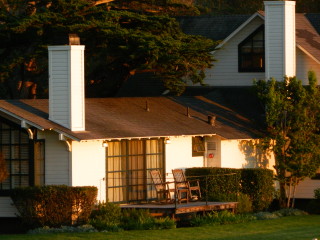Probate Litigation Palm Beach: laying the foundation for deposition transcript (October 31, 2014 Florida evidence case)

Probate litigation law firms have to understand not only the Florida Probate Rules and the Florida Probate Code, but also Civil Procedure and the Evidence Code in Florida. A recent Florida criminal case speaks about laying the evidentiary foundation at trial to use a deposition transcript of awitness. When can the deposition transcript of a witness be used and when is it anexception to Florida’s Hearsay Rule? If you are involved in Palm Beach probate litigation, you may want to read this Florida Evidence case from Florida’s 1st District Court of Appealopinion handed down on October 31, 2014. Probate litigation law firms West Palm Beach may want to use this case to understand how to lay a foundation to use the deposition transcript and get around the Hearsay Rule at your estate trial.
Will Contests and Will Challenges Palm Beach
 If you are involved in a will challenge or a will contest, you are going to have to deal with someone trying to void the Florida will at trial.
If you are involved in a will challenge or a will contest, you are going to have to deal with someone trying to void the Florida will at trial.- Before your will challenge trial Palm Beach, there will most likely be depositions
- How will your probate litigation law firm Palm Beach County use those deposition transcripts?
- What if the witness on the stand in the middle of your estate lawsuit trial can’t recall things?
Probate Litigation Trial Strategies
- Understanding how you will use your witnesses and any deposition transcripts will be an important part of your estate litigation strategy
- What do you hope to gain? How will a witness help or hurt your will contest lawsuit?
- What if the witness can’t remember or forgot something?
- Can you use deposition transcripts at trial and under what circumstances?
- How do you handle the Hearsay Objection made by opposing counsel regarding testimony via a deposition transcript?
- The case of Blount, Jr. v. State, Case No. 1D13-2579 will provide useful pointers on laying a foundation for the deposition transcript of a witness and overcoming any hearsay objection. 39 Fla. Law Weekly D 2283.
- Remember: an out of court statement at your probate litigation trial which is offered for the truth of the matter asserted is Florida Hearsay which is generally prohibited
- But as any estate litigator Boca Raton will tell you, there are EXCEPTIONS to Florida’s Hearsay Rule and there are also statements which are NOT Hearsay
- When you want to use the deposition transcript or testimony of a witness who is testifying at your probate trial, remember to lay an evidentiary foundation
- After all, before a witness can testify about “stuff” like facts and recollection and what happened and who did what….. you have to lay a foundation: demonstrate to theProbate Court that the witness is competent to testify; that he or she is credible and capable to testify about certain facts and occurences; otherwise, evidence doesn’t get in or the other probate litigator will IMPEACH the witness if the te
- The Florida Evidence Code section 90.803(5) is cut and pasted below
Florida Evidence Code statute 90.803(5) reads, in part:
90.803 Hearsay exceptions; availability of declarant immaterial.-The provision of s. 90.802to the contrary notwithstanding, the following are not inadmissible as evidence, even though the declarant is available as a witness:
(5) RECORDED RECOLLECTION.-A memorandum or record concerning a matter about which a witness once had knowledge, but now has insufficient recollection to enable the witness to testify fully and accurately, shown to have been made by the witness when the matter was fresh in the witness’s memory and to reflect that knowledge correctly. A party may read into evidence a memorandum or record when it is admitted, but no such memorandum or record is admissible as an exhibit unless offered by an adverse party.